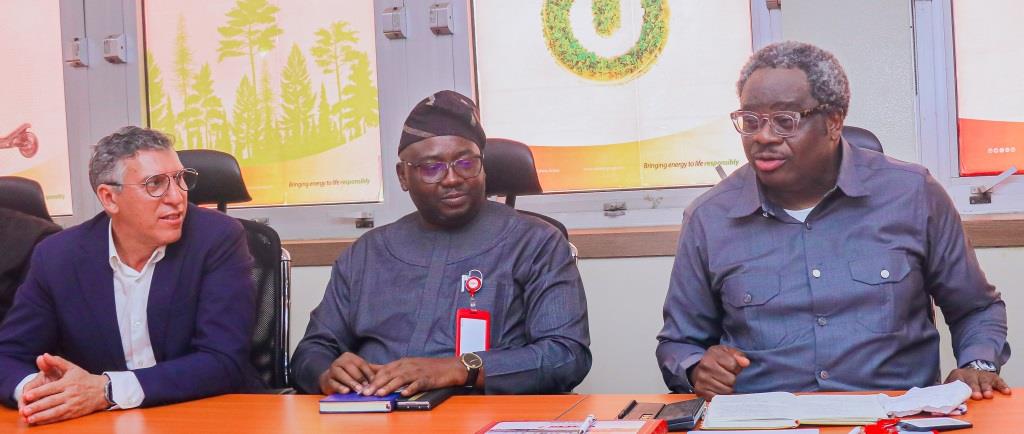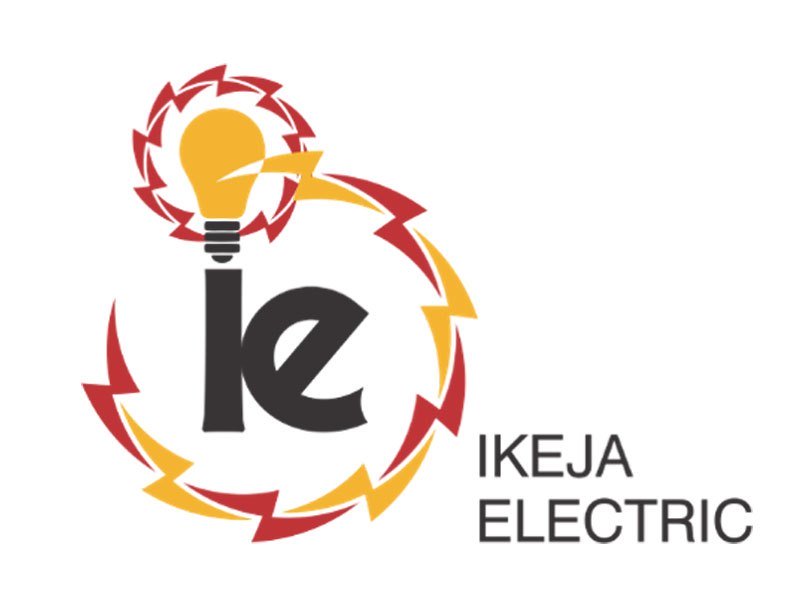Economy
FG to Prioritise FX Allocation to Egbin Power, Others

By Adedapo Adesanya
The Minister of Power, Mr Adebayo Adelabu, has disclosed that the federal government was working to gradually offset the debt owed Nigeria’s largest power generation company, Egbin Power, from April 2024, noting that constraints of gas supply and foreign exchange (FX) are also being tackled.
Mr Adelabu gave this assurance during his visit to the power plant in Lagos as part of his strategic measures to strengthen understanding among stakeholders, offer robust support to players, and address the challenges in the sector, with the overall aim of boosting power supply in Nigeria.
“The federal government is prioritising paying down on the outstanding debt and I have assured the board and management of Egbin Power that, effective April, we will start paying as a form of encouragement to continue to have them in operations,” the Minister said, according to a statement.
Regarding the constraints encountered by power generation companies (GenCos) in accessing forex, Mr Adelabu stated that crucial steps were being taken to prioritize allocation to the GenCos.
“Forex sourcing has been a major constraint to effective maintenance of the facility. I have seen what we have on the ground here, and the critical need for spares and tools for continuous maintenance. We will liaise with the Central Bank of Nigeria (CBN) to prioritize foreign exchange allocation to the power sector.
“This will ensure the companies can ramp up capacity in terms of output. It is not just peculiar to Egbin Power Plant, it is across all the power generating Plants. They need Forex for them to be able to maintain the turbines and replace tools and spares. This has been a major issue. I am going to take steps to ensure I liaise with the CBN to see how they can prioritize Forex allocation to the power-generating companies,” he added.
While speaking on challenges of gas supply, he explained that engagements were held with the Ministry of Petroleum Resources and gas suppliers as part of measures to guarantee payment of debts and resolution of the gas constraints.
“Gas shortage has impeded almost all our gas power plants. And we already had a conversation with the Minister of Petroleum Resources. We are also meeting with the gas suppliers to plead with them and have an understanding that the FG is prepared to start paying down the debt that we owe the gas supply companies.
“We need to make some cash injection in terms of payments, we want to give them some guaranteed debt instruments in terms of promissory notes. And we are looking at allowing them access to Nigerian gas wells. So that this will be used to defray the outstanding debt of the gas suppliers over time,” he explained.
The Minister commended the Board and Management team of Egbin Power for its robust investment to improve, sustain and maintain the Plant’s infrastructure and facility while contributing largely to the sector despite the challenges.
Speaking on the issues, the Chief Executive Officer (CEO) of Egbin Power, Mr Mokhtar Bounour, said: “One of the major challenges we are facing is gas constraint, which is not allowing us to run the full capacity of the Plant. It requires a lot of investment efforts to keep the units running and safe.
“The other issue is the accumulated debt which the Minister discussed with us. On our part, we are adequately ensuring the maintenance, availability of the Plant and its efficiency. We are investing a lot to get these units to run optimally. This requires millions of dollars in investment,” Mr Bounour explained.
He commended the Minister for his commitment to address the challenges. “We highlighted the challenges we are facing, and the Federal Government, through the Minister of Power, has promised to start solving them gradually so we can start seeing improvements soon. We hope that the liquidity challenge will be solved soon as the Minister has promised,” Mr Bounour added.
In a related development, electricity distribution companies (DisCos) have pleaded for understanding from their customers as the country plunged into another blackout due to grid collapse – the second time this year after it collapsed on February 4.
The national electricity grid collapsed at 4:30 p.m. on Thursday, throwing millions of homes and businesses into darkness.
Economy
Tinubu Okays Extension of Ban on Raw Shea Nut Export by One Year

By Aduragbemi Omiyale
The ban on the export of raw shea nuts from Nigeria has been extended by one year by President Bola Tinubu.
A statement from the Special Adviser to the President on Information and Strategy, Mr Bayo Onanuga, on Wednesday disclosed that the ban is now till February 25, 2027.
It was emphasised that this decision underscores the administration’s commitment to advancing industrial development, strengthening domestic value addition, and supporting the objectives of the Renewed Hope Agenda.
The ban aims to deepen processing capacity within Nigeria, enhance livelihoods in shea-producing communities, and promote the growth of Nigerian exports anchored on value-added products, the statement noted.
To further these objectives, President Tinubu has authorised the two Ministers of the Federal Ministry of Industry, Trade and Investment, and the Presidential Food Security Coordination Unit (PFSCU), to coordinate the implementation of a unified, evidence-based national framework that aligns industrialisation, trade, and investment priorities across the shea nut value chain.
He also approved the adoption of an export framework established by the Nigerian Commodity Exchange (NCX) and the withdrawal of all waivers allowing the direct export of raw shea nuts.
The President directed that any excess supply of raw shea nuts should be exported exclusively through the NCX framework, in accordance with the approved guidelines.
Additionally, he directed the Federal Ministry of Finance to provide access to a dedicated NESS Support Window to enable the Federal Ministry of Industry, Trade and Investment to pilot a Livelihood Finance Mechanism to strengthen production and processing capacity.
Shea nuts, the oil-rich fruits from the shea tree common in the Savanna belt of Nigeria, are the raw material for shea butter, renowned for its moisturising, anti-inflammatory, and antioxidant properties. The extracted butter is a principal ingredient in cosmetics for skin and hair, as well as in edible cooking oil. The Federal Government encourages processing shea nuts into butter locally, as butter fetches between 10 and 20 times the price of the raw nuts.
The federal government said it remains committed to policies that promote inclusive growth, local manufacturing and position Nigeria as a competitive participant in global agricultural value chains.
Economy
NASD Bourse Rebounds as Unlisted Security Index Rises 1.27%

By Adedapo Adesanya
The NASD Over-the-Counter (OTC) Securities Exchange expanded for the first session this week by 1.27 per cent on Wednesday, February 25.
This lifted the NASD Unlisted Security Index (NSI) above 4,000 points, with a 50.45-point addition to close at 4,025.25 points compared with the previous day’s 3,974.80 points, as the market capitalisation added N30.19 billion to close at N2.408 trillion versus Tuesday’s N2.378 trillion.
At the trading session, FrieslandCampina Wamco Nigeria Plc grew by N5.00 to trade at N100.00 per share compared with the previous day’s N95.00 per share, Central Securities Clearing System (CSCS) Plc improved by N4.18 to sell at N70.00 per unit versus N65.82 per unit, and First Trust Mortgage Bank Plc increased by 14 Kobo to trade at N1.59 per share compared with the previous day’s N1.45 per share.
However, the share price of Geo-Fluids Plc depreciated by 27 Kobo at midweek to close at N3.27 per unit, in contrast to the N3.30 per unit it was transacted a day earlier.
At the midweek session, the volume of securities went down by 25.3 per cent to 8.7 million units from 11.6 million units, the value of securities decreased by 92.5 per cent to N80.7 million from N1.2 billion, and the number of deals slipped by 33.3 per cent to 32 deals from the preceding session’s 48 deals.
At the close of business, CSCS Plc remained the most traded stock by value on a year-to-date basis with 34.1 million units exchanged for N2.0 billion, trailed by Okitipupa Plc with 6.3 million units traded for N1.1 billion, and Geo-Fluids Plc with 122.0 million units valued at N478.0 million.
Resourcery Plc ended the trading session as the most traded stock by volume on a year-to-date basis with 1.05 billion units valued at N408.7 million, followed by Geo-Fluids Plc with 122.0 million units sold for N478.0 million, and CSCS Plc with 34.1 million units worth N2.0 billion.
Economy
Investors Lose N73bn as Bears Tighten Grip on Stock Exchange

By Dipo Olowookere
The bears consolidated their dominance on the Nigerian Exchange (NGX) Limited on Wednesday, inflicting an additional 0.09 per cent cut on the market.
At midweek, the market capitalisation of the domestic stock exchange went down by N73 billion to N124.754 trillion from the preceding day’s N124.827 trillion, and the All-Share Index (ASI) slipped by 114.32 points to 194,370.20 points from 194,484.52 points.
A look at the sectoral performance showed that only the consumer goods index closed in green, gaining 1.19 per cent due to buying pressure.
However, sustained profit-taking weakened the insurance space by 3.79 per cent, the banking index slumped by 2.07 per cent, the energy counter went down by 0.24 per cent, and the industrial goods sector shrank by 0.22 per cent.
Business Post reports that 25 equities ended on the gainers’ chart, and 54 equities finished on the losers’ table, representing a negative market breadth index and weak investor sentiment.
RT Briscoe lost 10.00 per cent to sell for N10.35, ABC Transport crashed by 10.00 per cent to N6.75, SAHCO depreciated by 9.98 per cent to N139.35, Haldane McCall gave up 9.93 per cent to trade at N3.99, and Vitafoam Nigeria decreased by 9.93 per cent to N112.50.
Conversely, Jaiz Bank gained 9.95 per cent to settle at N14.03, Okomu Oil appreciated by 9.93 per cent to N1,765.00, Trans-nationwide Express chalked up 9.77 per cent to close at N2.36, Fortis Global Insurance moved up by 9.72 per cent to 79 Kobo, and Champion Breweries rose by 5.39 per cent to N17.60.
Yesterday, 1.4 billion shares worth N46.2 billion were transacted in 70,222 deals compared with the 1.1 billion shares valued at N53.4 billion traded in 72,218 deals a day earlier, implying a rise in the trading volume by 27.27 per cent, and a decline in the trading value and number of deals by 13.48 per cent and 2.76 per cent, respectively.
Fortis Global Insurance ended the session as the busiest stock after trading 193.7 million units for N152.7 million, Zenith Bank transacted 120.7 million units worth N11.1 billion, Japaul exchanged 114.8 million units valued at N407.0 million, Ellah Lakes sold 98.4 million units worth N999.2 million, and Access Holdings traded 63.1 million units valued at N1.7 billion.
-

 Feature/OPED6 years ago
Feature/OPED6 years agoDavos was Different this year
-
Travel/Tourism10 years ago
Lagos Seals Western Lodge Hotel In Ikorodu
-

 Showbiz3 years ago
Showbiz3 years agoEstranged Lover Releases Videos of Empress Njamah Bathing
-

 Banking8 years ago
Banking8 years agoSort Codes of GTBank Branches in Nigeria
-

 Economy3 years ago
Economy3 years agoSubsidy Removal: CNG at N130 Per Litre Cheaper Than Petrol—IPMAN
-

 Banking3 years ago
Banking3 years agoSort Codes of UBA Branches in Nigeria
-

 Banking3 years ago
Banking3 years agoFirst Bank Announces Planned Downtime
-

 Sports3 years ago
Sports3 years agoHighest Paid Nigerian Footballer – How Much Do Nigerian Footballers Earn























